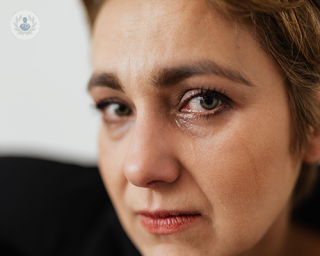Bassa autostima
What is self-esteem?
Self-esteem put simply, is how we feel about ourselves overall. It takes into account the self-love and positive regard you have for yourself. Hence, if you have healthy self-esteem, you would likely feel positively about yourself and about life itself too. Self-esteem develops over your lifetime, culminating from your various experiences and circumstances that eventually shape how you see yourself. Self-esteem comes from the opinions, value and beliefs you hold about yourself, which can be challenging to change.
What’s the difference between self-esteem and self-confidence?
Although these terms are often used interchangeably, they are not the same thing. Self-esteem, as described, is how we feel about ourselves, whereas self-confidence refers to how you feel about your abilities, which will vary between scenarios. Although they are different, they are related. To illustrate, if someone’s self-esteem improves, they are more likely to have increased self-confidence. On the other hand, it is also possible to have low self-esteem, but feel very confident about certain abilities you hold.
What is low self-esteem?
Low self-esteem is when, overall, you feel negatively about yourself and life in general.
What causes low self-esteem?
Everyone’s self-esteem is different, and factors that affect self-esteem will also differ too. The following are common factors that can precede low self-esteem:
- Being bullied
- Being abused
- Having mental health problems
- Stress
- Bereavement
- Work problems
- Body image issues
- Money problems
- Physical health issues
- Experiencing prejudice or discrimination
· Relationship problems (e.g. separation and divorce)
Low self-esteem can often begin during childhood where a child receives positive or negative messages from people such as their parents, siblings, teachers, friends, and other sources, such as social media . During childhood, it is often the negative messages that stick, which can be challenging to forget or let go of.
How can low self-esteem affect us?
Having low self-esteem will often make life challenges feel much more difficult to handle, whereas if your self-esteem is healthier, tackling the ups and downs of life can be more manageable. If you have low self-esteem, you might be more likely to avoid difficult situations or tasks. Having low self-esteem can also be harmful to our mental health, with problems such as depression and anxiety being related.
How can self-esteem issues be improved?
Self-esteem can be improved, and a good starting point can be to identify the negative beliefs you hold about yourself (e.g. thinking that you are not smart enough to apply for a new job). Equally, you should also identify things that you feel positively about yourself (e.g. that you are honest and reliable).
Other things that can help to improve self-esteem include:
· Build positive relationships and a support network
- Be kind to yourself
- Recognise your strengths
- Be more assertive
- Look after yourself physically
· Challenge yourself (e.g. don’t let your self-esteem stop you from something you want to achieve)












